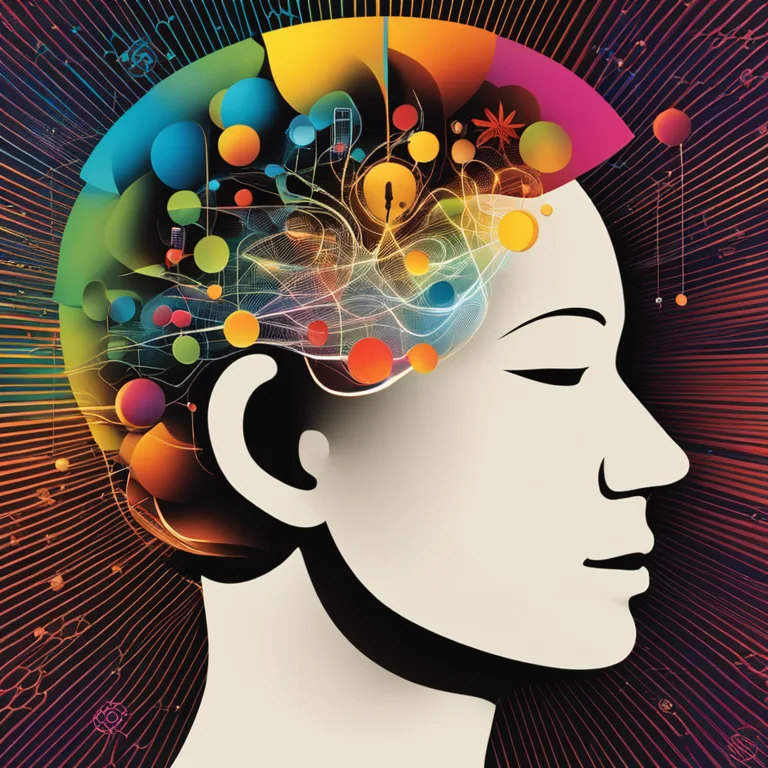
The Harmony of Mindfulness Meditation and Cognitive Flexibility
Delve into the synergy of meditation mindfulness and cognitive flexibility, and how mastering these practices can usher in a transformative mental agility.
article by Hina Kurosawa
Intertwining Meditation and Mindfulness
In the bustling rhythms of modern existence, the quest for mental clarity has led many to embrace the practices of meditation and mindfulness. These time-honored techniques have been studied extensively, standing out as effective tools for enhancing cognitive flexibility. Mindfulness meditation, in particular, is a focused form of mental training that cultivates an acute awareness of the present moment, while simultaneously acknowledging and accepting one's thoughts and feelings without judgment.

Enhancing Mental Agility
Cognitive flexibility refers to the brain's ability to adapt its thinking and to create new thought patterns. It's the cornerstone of learning, problem-solving, and creativity. By promoting a state of relaxed but acute awareness, mindfulness meditation facilitates a departure from habitual, rigid thought patterns, encouraging a more dynamic, fluid approach to processing information and experiences. This proves invaluable in an ever-evolving world where adaptability is a trait that is not just admirable but also essential.

The Science Behind the Practice
Recent studies as of 2024 suggest that mindfulness practices can lead to structural changes in the brain, particularly in regions associated with attention, self-awareness, and self-regulation. These changes are correlated with an increase in cognitive flexibility, as participants report improved attentional switching and reduced cognitive rigidity. With neuroplasticity at its core, the brain's capacity to rewire and strengthen new neural connections is a testament to its adaptability, enhanced through regular mindfulness exercises.

Mindfulness in Daily Life
Integration of mindfulness into daily routines can be accomplished in various ways, such as mindful eating, walking, or even routine chores, transforming them into opportunities for presence and cognitive exercise. By engaging fully with the present moment in everyday activities, one cultivates a habit of flexible attention that translates into broader life contexts, fostering a nimble mindset conducive to adaptable thinking and emotional resilience.

The Role of Regular Practice
Commitment to regular practice is crucial in unlocking the full benefits of mindfulness meditation on cognitive flexibility. Consistency not only enhances the ability to remain present but also conditions the mind to transition seamlessly between tasks and thoughts. This practice becomes a mental gymnastic that progressively builds upon the individual's capacity to skillfully navigate complex situations with ease and grace.
Embracing a Holistic Approach
For those on a path toward personal growth and development, the integration of mindfulness meditation into one's lifestyle is a strategic move towards achieving greater cognitive flexibility. The holistic nature of this practice not only enriches mental functioning but also promises to improve emotional regulation, stress reduction, and overall well-being. It's a comprehensive approach that aligns with the intricate tapestry of body, mind, and spirit.
Forging Paths to Transformation
As mindfulness meditation continues to gain prominence as a valuable tool for cognitive enhancement, it is clear that its role in developing cognitive flexibility is more than merely beneficial; it is transformative. With the burgeoning interest in neuropsychology and mental wellness practices, mindfulness serves as a bridge to a more adaptable, resilient, and creative mindset—a pinnacle of personal evolution.
Published: 1/8/2024
Modified: 1/8/2024
More predictions
Come back here soon to learn more about yourself and your future


Meditation's Impact on the Limbic System
Explore how meditation can positively influence your emotional and neurological well-being through its effects on the limbic system.


The Harmonious Trio: Meditation, Mindfulness & Breathwork
Embark on a journey to inner peace with our guide on integrating meditation, mindfulness, and breathwork into your daily life.


Harmonize Your Spirit: Energy Meditation Techniques
Discover the serene world of energy meditation to harmonize the spirit, balance the chakras, and foster inner peace in our modern lives.